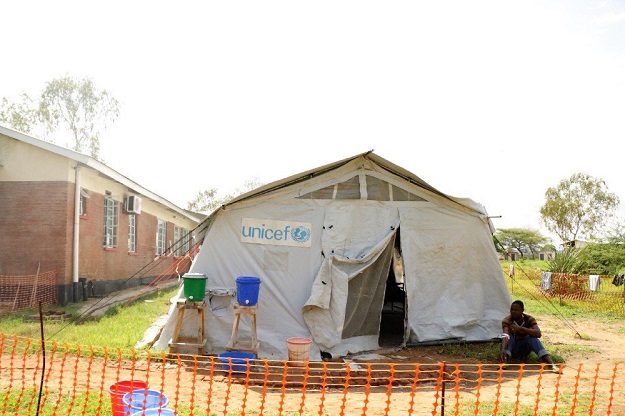United Nations Children’s Fund (UNICEF) has warned that without immediate action the current cholera outbreak Malawi is grappling with will worsen.
UNICEF Country Representative Rudolf Schwenk said this on Tuesday during a media briefing in Geneva, Switzerland.
Schwenk said Malaŵi is experiencing the deadliest cholera outbreak in its recorded history.
He observed: “The country is also struggling to respond to a polio outbreak and ongoing COVID-19 cases across the nation.
“Resources are limited, the health system is overburdened, and health workers are stretched to their limits. These are incredibly difficult times for the children of Malawi,” Schwenk said.
“UNICEF believes that the lethal cholera outbreak was likely caused by Tropical storms Ana and Gombe which hit Malaŵi just over a year ago, combined with chronic underfunding on water and sanitation infrastructure, and disruption of cholera prevention campaigns due to COVID-19.”
Schwenk noted that with a combination of the ongoing annual lean season -when millions of Malawians are expected to be food insecure, children are suffering most as a result of this crisis.
He added that an estimated 4.8 million children are in humanitarian need, and by the end of this month, almost a quarter of a million children under five years of age are expected to be acutely malnourished.
“As a severely malnourished child is 11 times more likely to die from cholera than a well-nourished child, a bout of cholera may amount to a death sentence for thousands of children in Malawi.
“Such crises are very stressful for individuals and families and often lead to negative coping mechanisms, increased level of violence in homes and communities placing women and children in particularly vulnerable situations,” said Schwenk.
UNICEF has since appealed for a US$ 52.4 million aid to provide lifesaving supplies, services, and technical support in water, sanitation, and hygiene, among other interventions.
Since March this year, more than 12,000 children have contracted cholera and 197 have died.





